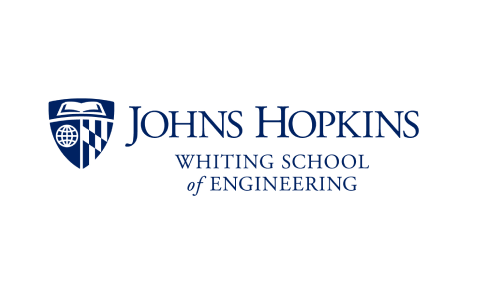Introduction to Tensorflow and Keras
Learn tensorflow & keras in this free online training. Tensorflow & keras course is taught hands-on by experts. Learn how to get started with tensorflow and convolution process in details. Best for beginners. Enroll for free now!

Ratings
Level
Learning hours

Learners
Skills you’ll Learn
About this course
This Introduction to TensorFlow and Keras course will enrich your knowledge about all the essential Python libraries and guide you to install them step by step. It will start by explaining what TensorFlow is and its various functionalities. It will then take you to get a brief understanding of the prerequisites to understand tensors before moving on to the installation chapter. Once your concept of TensorFlow is clear, the course will have you navigate through Neural Networks and discuss how you can write Tensor code to perform distinct operations. Before wrapping up the course, you will also learn about the newer version (TensorFlow 2.x) and learn to perform Linear Regression using TensorFlow. In the last phase, the course will take you through the hands-on session, which will discuss two use cases and finally throw light on what Keras is, its features, character recognition, and image classification using CNN.
Are you ready to escalate your career in Artificial Intelligence? Enroll in this Artificial Intelligence Course. Upskill yourself and learn real-world skills from the best.
Course Outline
With the high demand for Deep Learning, it is essential to learn about TensorFlow to create Deep Learning models. Here, we will learn what TensorFlow is, the essential library, and the in-demand skill.
This section will continue discussing the various functionalities of TensorFlow, including Google Colab, reasons to learn TensorFlow, and Languages & OS supported by TensorFlow.
This section will discuss the prerequisites to understand tensors, including Linear Algebra, Vector Calculus, and Python Calculus, and how they work together to provide effective results.
In this section, you will learn about the latest version and compatibility and how you can install TensorFlow based on what GUI/CLI you use for Python.
You will understand what Neural Networks are and how they are a pathway to Artificial Intelligence using Deep Learning. This section will also give a brief idea of weights & mathematics in Neural Networks.
 UPGRADE
UPGRADE
Recommended university programs
What our learners enjoyed the most
Skill & tools
63% of learners found all the desired skills & tools
Frequently Asked Questions
Will I receive a certificate upon completing this free course?
Is this course free?
What are the prerequisites required to learn this Introduction to TensorFlow & Keras Course?
Learning TensorFlow and Keras requires no prerequisites. But it's preferred that learners have a fundamental understanding of statistics, algebra, and Machine Learning.
How long does completing this free Introduction to TensorFlow & Keras Course take?
This course contains approximately 3 and a half hours of video content you can watch and learn in your comfort.
Will I have lifetime access to the free course?
Yes, you will get lifetime access to this free Introduction to TensorFlow and Keras course that you can view anytime.
Other Artificial Intelligence tutorials for you
Understanding Tensorflow and Keras
TensorFlow and Keras are powerful open-source tools for creating machine-learning models. TensorFlow is a library for numerical computation and deep learning. At the same time, Keras is a high-level neural network API. Together; they provide a comprehensive set of tools for developers to create modern artificial intelligence (AI) applications.
Introduction to TensorFlow
TensorFlow is an open-source software library for numerical computation and deep learning. It was developed by Google and is widely used for machine learning, data science, and artificial intelligence. It provides extensive tools to help developers create and deploy machine learning models. It supports both CPU and GPU hardware, and it can be used in a variety of languages, including Python, Java, and C++.
Brief About TensorFlow-2
TensorFlow 2 is the latest version of the library, released in 2019. It offers many new features and improvements over the previous version, such as a more intuitive API, eager execution, improved performance, and support for custom training loops. TensorFlow 2 also makes it easier to use advanced techniques such as transfer learning and generative adversarial networks.
What are Tensors?
Tensors are multi-dimensional arrays of data. They are the fundamental building blocks of TensorFlow. Tensors are used to represent and manipulate data in machine-learning models. The data can be numerical (floating-point values) or categorical (text, images, etc.).
How to Install TensorFlow?
TensorFlow can be installed on various platforms, including Windows, Linux, and MacOS. It can be installed using the official TensorFlow package or through Anaconda. We recommend using the Anaconda distribution, as it provides a convenient way to manage multiple versions of Python and TensorFlow.
Introduction to Neural Networks
Neural networks are a machine learning model inspired by the structure and function of the human brain. They are used to solve complex problems, such as image and voice recognition, natural language processing, and machine translation. Neural networks consist of layers of interconnected neurons that process data and make predictions.
Basic Demo on TensorFlow-2
To get started with TensorFlow 2, we recommend going through the official tutorials. These provide step-by-step instructions on how to use the library to create machine-learning models. There are also many example programs available to help you understand the basics of TensorFlow.
Getting Started with Keras-2
Keras-2 is a high-level neural network API built on top of TensorFlow. It makes it easier to create and deploy machine learning models. With Keras, you can create neural networks with just a few lines of code. It also provides a wide range of tools to help you optimize your models and make them more accurate.
Free Course on TensorFlow and Keras
If you want to learn more about TensorFlow and Keras, we recommend taking the free course on “TensorFlow and Keras” from Udemy. In this course, you will learn about machine learning and deep learning fundamentals and how to use TensorFlow and Keras to create powerful AI applications. At the end of the course, you will receive a certificate of completion.





























.png)




.jpg)








